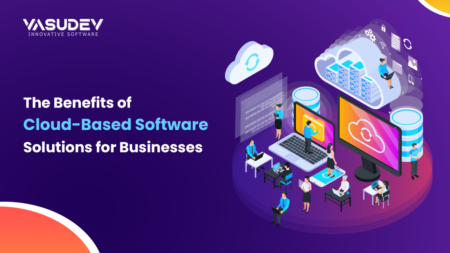 Cloud software for businesses has revolutionized how organizations operate by providing scalable, flexible, and cost-effective solutions for a wide range of business functions. These solutions are accessible via the internet, allowing businesses to access data and applications from anywhere, without the need for on-premise infrastructure. Here are key categories of cloud software that businesses commonly use:
Cloud software for businesses has revolutionized how organizations operate by providing scalable, flexible, and cost-effective solutions for a wide range of business functions. These solutions are accessible via the internet, allowing businesses to access data and applications from anywhere, without the need for on-premise infrastructure. Here are key categories of cloud software that businesses commonly use:
1. Cloud Storage & File Sharing
- Examples: Google Drive, Dropbox Business, Microsoft OneDrive.
- Use Case: Securely storing, sharing, and managing files and documents across teams and departments.
2. Cloud-Based Collaboration Tools
- Examples: Slack, Microsoft Teams, Zoom.
- Use Case: Facilitating real-time communication, collaboration, video conferencing, and project management.
3. Customer Relationship Management (CRM)
- Examples: Salesforce, HubSpot, Zoho CRM.
- Use Case: Managing customer interactions, tracking sales pipelines, marketing automation, and customer service.
4. Enterprise Resource Planning (ERP)
- Examples: Oracle NetSuite, SAP S/4HANA, Microsoft Dynamics 365.
- Use Case: Managing core business processes like finance, supply chain, HR, procurement, and compliance within a unified system.
5. Human Resource Management Systems (HRMS)
- Examples: Workday, BambooHR, Gusto.
- Use Case: Streamlining recruitment, employee onboarding, payroll, benefits, and performance management.
6. Project Management Software
- Examples: Asana, Trello, Monday.com.
- Use Case: Planning, tracking, and managing projects and workflows, enhancing team collaboration and task assignments.
7. Accounting & Financial Software
- Examples: QuickBooks Online, Xero, FreshBooks.
- Use Case: Managing financial transactions, invoices, payroll, and tax reporting.
8. Marketing Automation
- Examples: Marketo, Mailchimp, ActiveCampaign.
- Use Case: Automating marketing campaigns, lead nurturing, email marketing, and performance analytics.
9. Cloud Infrastructure Platforms (IaaS/PaaS)
- Examples: Amazon Web Services (AWS), Microsoft Azure, Google Cloud Platform (GCP).
- Use Case: Hosting applications, storing large-scale data, and providing virtual machines, databases, and development tools.
10. Cybersecurity and Backup
- Examples: Zscaler, Carbonite, Okta.
- Use Case: Ensuring data protection, cloud security, user authentication, and backup solutions for business continuity.
11. Business Intelligence (BI) & Data Analytics
- Examples: Tableau, Power BI, Looker.
- Use Case: Analyzing business data to gain insights, create reports, and drive data-driven decision-making.
Benefits of Cloud Software for Businesses:
- Scalability: Easily scale up or down based on business needs.
- Cost Efficiency: No need for costly hardware; pay-as-you-go models.
- Flexibility: Access from any location on any device.
- Security: Many cloud providers offer advanced security measures, including encryption, backup, and disaster recovery.
- Collaboration: Real-time updates and shared access make teamwork more efficient.
